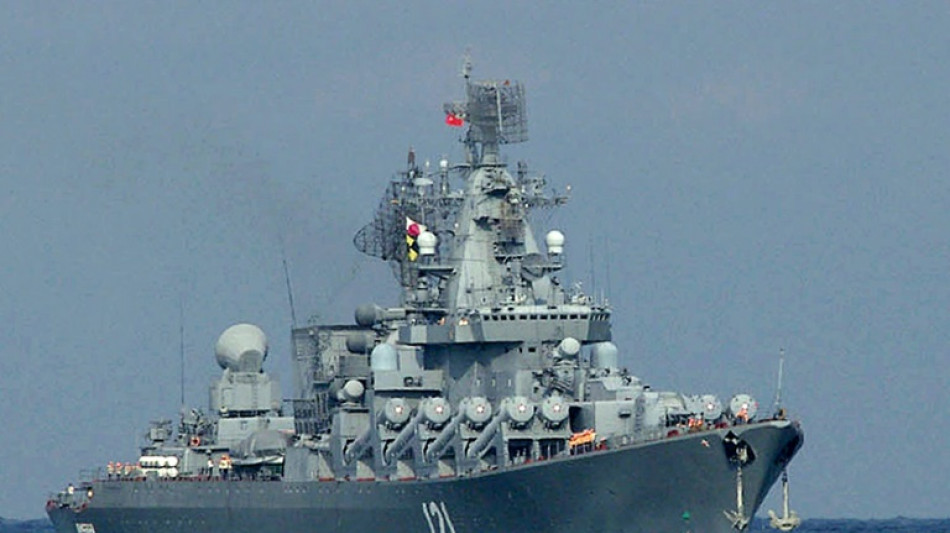
-
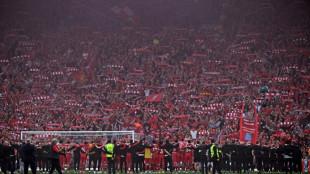 Slot told Liverpool they could win the league at season start: Konate
Slot told Liverpool they could win the league at season start: Konate
-
Spain brought to a halt by huge blackout
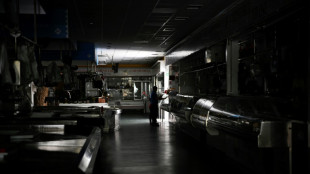
-
 Stock markets mostly higher amid trade talk hopes
Stock markets mostly higher amid trade talk hopes
-
Conclave starts May 7, with cardinals saying new pope must tackle abuse

-
 Massive blackout hits Spain and Portugal
Massive blackout hits Spain and Portugal
-
Ruediger 'must show respect to others' says Germany boss Voeller

-
 As Canada votes, Trump pushes US takeover plan
As Canada votes, Trump pushes US takeover plan
-
Ten on trial in Paris over 2016 gunpoint robbery of Kim Kardashian

-
 African players in Europe: Salah scores, takes selfies as Reds seal title
African players in Europe: Salah scores, takes selfies as Reds seal title
-
Bangladesh spinner Taijul's 5 wickets trigger Zimbabwe collapse in 2nd Test
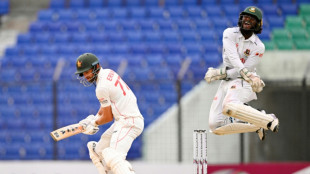
-
 French mosque murder suspect, 21, surrenders in Italy
French mosque murder suspect, 21, surrenders in Italy
-
Mayor Khan keen for London to make Olympics history
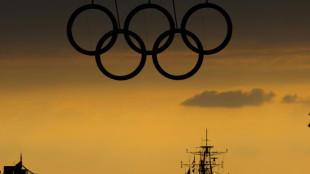
-
 Iranian president visits Azerbaijan as ties warm
Iranian president visits Azerbaijan as ties warm
-
What we know ahead of the conclave

-
 Jannik Sinner launches foundation supporting children
Jannik Sinner launches foundation supporting children
-
Villagers on India's border with Pakistan fear war

-
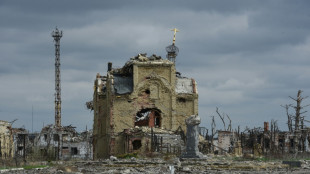 Putin announces surprise Ukraine truce for May 8-10
Putin announces surprise Ukraine truce for May 8-10
-
Conclave to elect new pope starts May 7

-
 Stock markets mostly rise amid trade talk hopes
Stock markets mostly rise amid trade talk hopes
-
India says signs deal with France for 26 Rafale fighter jets
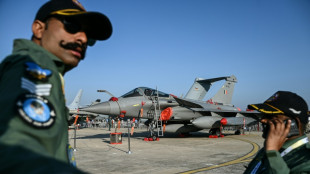
-
 Trump's deep-sea mining order violates global norms: France
Trump's deep-sea mining order violates global norms: France
-
India Kashmir crackdown sparks anger as Pakistan tensions escalate
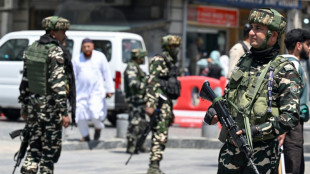
-
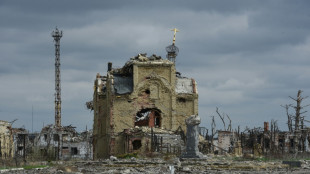 Russia says claims over annexed Ukraine regions key to peace
Russia says claims over annexed Ukraine regions key to peace
-
Austrian climber dies on Nepal mountain

-
 Fires rage 2 days after Iran port blast killed 46
Fires rage 2 days after Iran port blast killed 46
-
Palestinian official tells ICJ Israel using aid blockage as 'weapon of war'
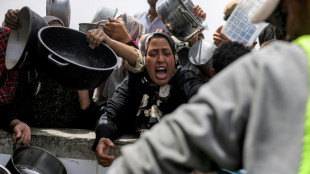
-
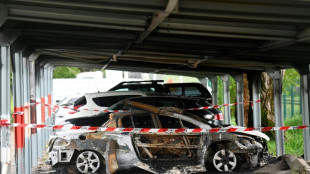 France arrests 25 in police raids after prison attacks
France arrests 25 in police raids after prison attacks
-
Kim Kardashian's next star turn is in a Paris courtroom

-
 Syria group says military chief arrested in UAE
Syria group says military chief arrested in UAE
-
Anger in Indian Kashmir at demolitions and detentions
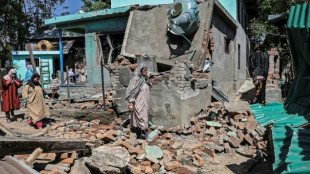
-
 Italy bank merger wave heats up as Mediobanca eyes Banca Generali
Italy bank merger wave heats up as Mediobanca eyes Banca Generali
-
Putin critic Johann Wadephul, Germany's incoming foreign minister

-
 Cardinals expected to pick conclave date to elect new pope
Cardinals expected to pick conclave date to elect new pope
-
French mosque murder suspect arrested in Italy

-
 China says on 'right side of history' in trade standoff with US
China says on 'right side of history' in trade standoff with US
-
Stock markets mostly rise as investors eye trade talks

-
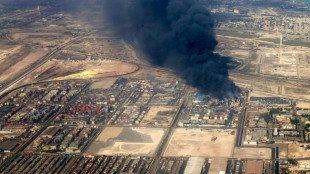 Fires rage 2 days after Iran port blast killed 40
Fires rage 2 days after Iran port blast killed 40
-
Yemen's Huthi rebel media says 68 killed in US strikes on migrant centre
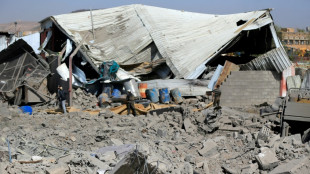
-
 Man rescued from Mount Fuji twice in one week: reports
Man rescued from Mount Fuji twice in one week: reports
-
Canada votes for new government to take on Trump

-
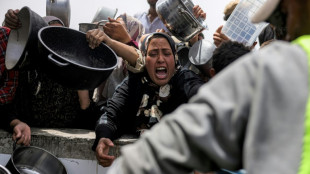 Top UN court to open hearings on Israel's aid obligation to Palestinians
Top UN court to open hearings on Israel's aid obligation to Palestinians
-
Philippines denies 'irresponsible' Chinese report on disputed reef
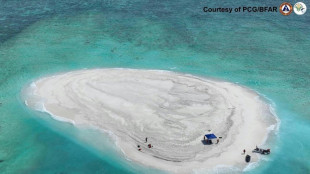
-
 T'Wolves win to push Lakers to brink, Celtics, Knicks and Pacers win
T'Wolves win to push Lakers to brink, Celtics, Knicks and Pacers win
-
Myanmar marks month of misery since historic quake
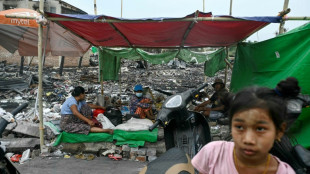
-
 South Korea's SK Telecom begins SIM card replacement after data breach
South Korea's SK Telecom begins SIM card replacement after data breach
-
Women's flag football explodes in US as 2028 Olympics beckon

-
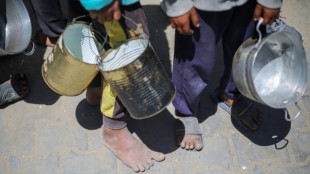 'Hunger breaks everything': desperate Gazans scramble for food
'Hunger breaks everything': desperate Gazans scramble for food
-
Suspect charged with murder in Canada car attack that killed 11

-
 Lost to history: Myanmar heritage falls victim to quake
Lost to history: Myanmar heritage falls victim to quake
-
Romania far-right rides TikTok wave in election re-run


Lost warship dents Russian pride, navy capability
Russia's loss of its flagship cruiser Moskva represents a dent in the operational capabilities of the Russian navy and a severe wound to Russian pride at the height of the war against Ukraine, analysts say.
The Moskva sank on Thursday after an explosion and fire that Ukraine claimed was a successful missile strike and Russia said was the result of exploding ammunition.
Until the sinking of the Moskva, nobody had good reason to doubt Russia's supremacy in the Black Sea during the conflict with Ukraine but these calculations have now changed.
"In symbolic terms this is a great loss," said ex-admiral Pascal Ausseur, director general of the Toulon-based Mediterranean Foundation of Strategic Studies (FMES).
The 12,000-ton ship should have been able to withstand one missile impact or more and get a fire under control, but instead went under in just 12 hours, he told AFP.
"That was not part of the plan," Ausseur said, adding that the Moskva probably housed the command post for the naval group which now will have to find a new home.
- 'Same errors at sea' -
Coming after successive setbacks for President Vladimir Putin in the 50-day-old war -- including an unexpectedly weak air and land combat record -- the loss of the Moskva will also have a real impact on the Russian navy's ability to attack Ukrainian targets and keep its fellow fighters safe.
"Russia is committing the same errors at sea that they previously made on land," said one high-ranking French officer.
The 186-metre- (610-foot-) long cruiser was equipped with 16 surface-to-surface Bazalt/Vulcan missiles used against ships as well as Fort missiles, which are navy-adapted versions of long-range S-300s, and short-range Ossa missiles.
Able to carry a crew of 680, its role was to give air cover to other ships during their operations, especially during the bombing of targets on the coast and landings, according to a Telegram post by Sergei Brachuk, a spokesman for the Odessa regional military administration.
But beyond representing a body blow to Russian military prestige, the Moskva's loss is probably not a game changer for the Russian campaign, Western analysts said.
"The rest of the Black Sea Fleet remains a puissant force," said Nick Brown at British intelligence analysis firm Janes.
- 'Not de-fanged' -
Brown cited the Admiral Grigorovich-class frigates with their much more modern air defence suite, able to launch Kalibr precision land attack missiles, as examples.
"The fleet has not been de-fanged," he told AFP.
Institute for the Study of War (ISW) analysts said in a note that the loss of the Moskva would reduce Russia's ability to conduct cruise missile strikes but was "unlikely to deal a decisive blow to Russian operations on the whole."
"The Moskva's main role was likely conducting precision strikes with Kalibr cruise missiles on targets in Ukrainian rear areas, including logistics centres and airfields," they said.
The remaining force is all the more crucial for Russian capabilities as Moscow cannot dispatch a replacement for the Moskva while Turkey keeps the Bosphorus and Dardanelles straits closed to warships.
This, some analysts say, may not make a huge difference to the current phase of the war which has seen the Russian navy play a limited role.
But the ship's loss could force Moscow to revise any plans to give the navy a bigger role in the future, said Maia Otarashvili at the Foreign Policy Research Institute.
Russian strategists have to ask the uncomfortable question whether Ukraine has more powerful defences against naval onslaught than they thought, she told AFP.
President Volodymyr Zelensky has repeatedly asked friendly Western governments to supply him with much-needed coastal defence missiles.
"What kind of recently-acquired anti-ship missiles does Ukraine have? And what damage can they do to the Russian navy?" she asked.
- 'Real vulnerability' -
Another consequence is that it is now far less likely that Moscow would launch any amphibious operation against a Ukrainian city such as Odessa.
"Even before this... the Russians did not have air superiority, which is a sine qua non for launching an amphibious operation," said a senior French naval officer, who asked not to be named.
"Now they are less ready than ever to do so," added the source.
The full story of what caused the Moskva's demise are unlikely to be known soon, as experts will need to examine its hull which is now somewhere in the depths of the Black Sea.
But it's already clear that the disappearance of the Moskva "reveals a real vulnerability" of the Russian navy, Ausseur said.
Whether it was a direct missile hit or an explosion caused by problems on board they "indicate possible Russian deficiencies —- either poor air defenses or incredibly lax safety procedures and damage control on the Black Sea Fleet's flagship," the ISW analysts said.
L.Harper--AMWN